Principal Investigator
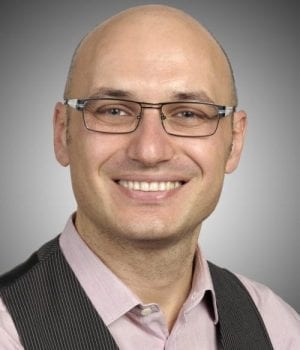
Luca Argenti, Ph.D.
Luca Argenti leads the Theoretical Attosecond Group at the Department of Physics and CREOL. The group research focuses on the time-resolved study of the correlated motion of electrons in polyelectronic atoms and molecules. This motion, which unfolds on the attosecond time scale, can only be observed using recent advances in pulse-laser technology and its reconstruction requires the assistance of complex quantum mechanical theories such as those developed in Argenti Theoretical Attosecond Spectroscopy group. LA earned his undergraduate degree in chemistry in 2001 from the University of Pisa (Italy, EU), and his Ph.D. in chemistry in 2008, from the Scuola Normale Superiore of Pisa, with a thesis in theoretical atomic physics. He was Postdoctoral Fellow at Stockholm University (Sweden, EU) between 2009 and 2010, and at the Autonomous University of Madrid (Spain, EU) between 2010 and 2016. He began as Assistant Professor at UCF in 2016.
Postdoctoral Fellows
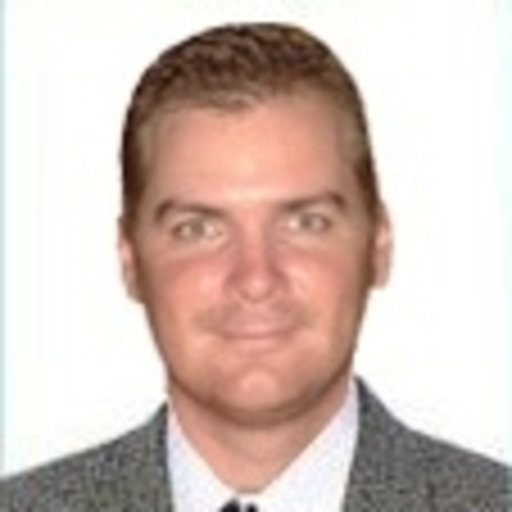
Carlos joined the Theoretical Attosecond Science group in July 2021, supported by DOE and NSF federal funds as well by UCF’s Preeminent Postdoctoral Program award (P3). His main research focus is on the development of ab initio scattering and time-propagation methods for atomic and molecular photoionization processes, resolved in time. In particular, he is implementing these methods in the ASTRA program to study single- and multi-photon total and partial photoionization cross sections of molecules, as well as the associated laboratory-frame and molecular-frame photoelectron angular distributions (LFPADs and MFPADs, respectively). The systems he studies range in size from diatomics, like N2, CO, and O2, to comparatively large molecules such as Mg-Porphyrin, a biologically relevant organometallic compound with 37 atoms. He has also developed a semi-empirical variant of the NewStock atomic code that allows us to study the effect of spin-orbit coupling in atomic multi-photon ionization processes. Carlos co-supervises two graduate students, Andrew Short and Felipe Kalluf Faria, as well as the occasional undergraduate and high-school students doing research internships in the group.
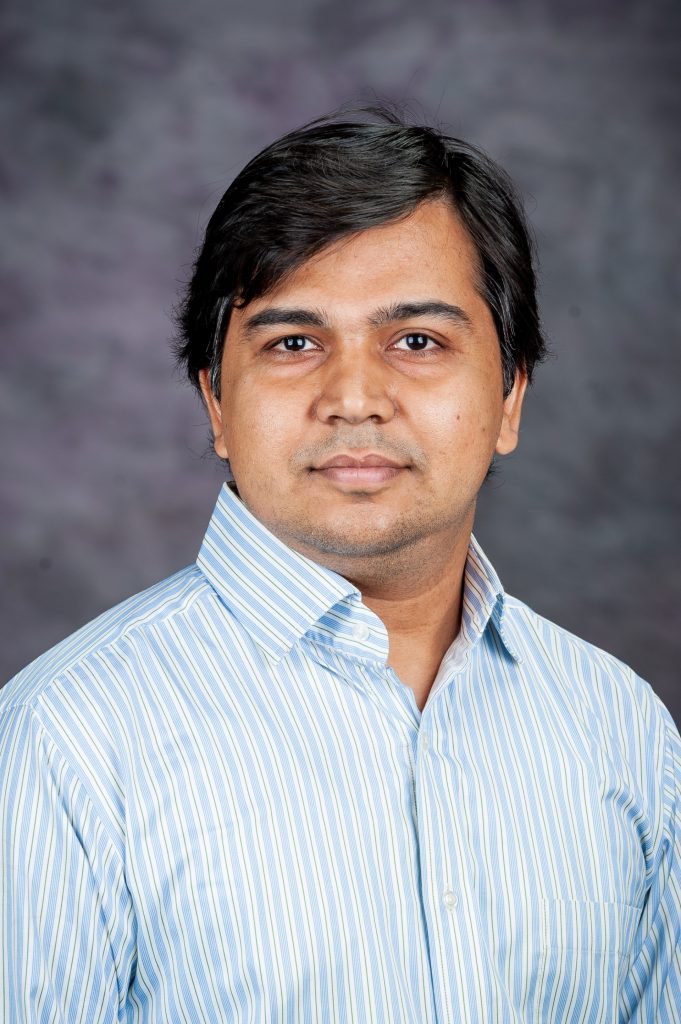
Siddhartha joined the Theoretical Attosecond Science group in July 2021, supported by DOE and NSF federal funds as well by UCF’s Preeminent Postdoctoral Program award (P3). His research focuses on time-resolved two-photon double ionization processes. He has developed a virtual-sequential model for this process that accounts for intermediate and final resonant transitions and applied it to rare-gas atoms. In the future, he will extend this approach to the pump-probe double ionization of polyatomic molecules. He also works on relativistic effects in atomic ionization and on the development of a solver for the time-dependent Schrödinger equation for atoms under the influence of arbitrarily polarized pulses. Siddhartha has supervised several undergraduate students.
Graduate Students
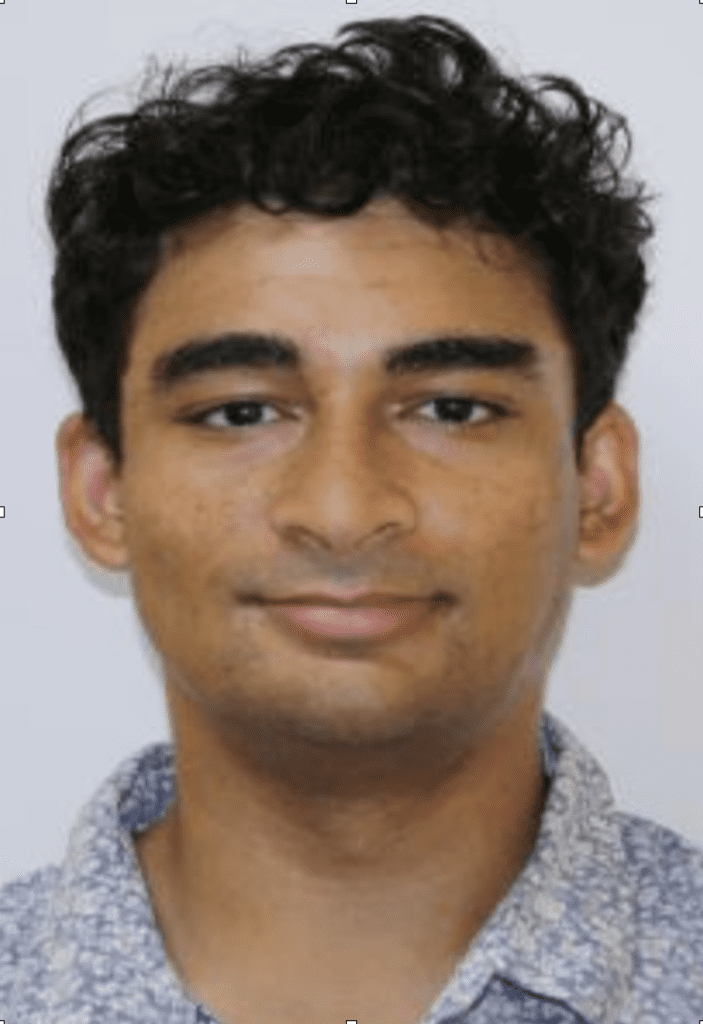
Andrew joined the group in Fall 2021 as a graduate Bridge Program Fellow, and he started in the Ph.D. program in Fall 2022. Andrew studies topologically robust protocols for the control of metastable-state population, and of metastable wave packets in general, in polyatomic molecules. His research hinges on the exceptional points that appear in laser-dressed systems above the ionization threshold. Andrew’s work has both an analytical and a numerical component. For the latter, he is using the ASTRA molecular ionization code, developed in the group. Andrew presented his work “Correlation effects in O2 attosecond transient absorption“ at the 2022 DAMOP conference in Spokane, WA. In his free time, Andrew enjoys playing the cello and listening to music.
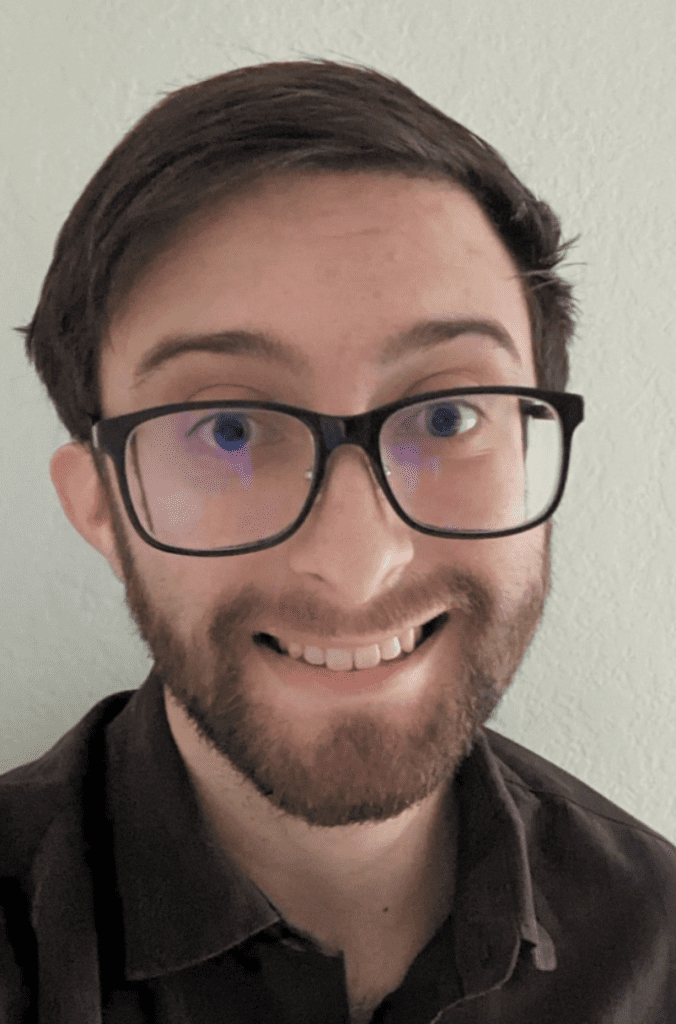
Nicholas Lewis
Nicholas started the Physics Ph.D. program at UCF in Fall 2022. He studies the above-threshold multi-photon ionization of metastable states in the helium atom by simulating pump-probe experiments with extreme ultraviolet pulses, such as those generated at x-ray Free-Electron Lasers, with intense pulses of infrared light. To do so, he is developing a hybrid numerical and analytical approach to solve the time-dependent Schrödinger equation that allows to simulate the evolution of a photoelectron wave packet using much smaller quantization boxes than those that would be required for a fully numerical simulations. Nicholas presented his work “XUV-pump IR-probe resonant shake-up ionization of helium” at the 2022 DAMOP conference in Spokane, WA. Starting Fall 2023, this part of Nicholas’s research will be supported by a grant from the NSF theoretical AMO physics program. Subsequently, Nicholas will port the same technique to the study of time-resolved photoelectron spectroscopies in molecules, using the newly developed ASTRA molecular ionization code, with the support of a grant from the DOE BES AMOS program. In his free time Nicholas enjoys playing soccer, paddleboarding, and hiking.
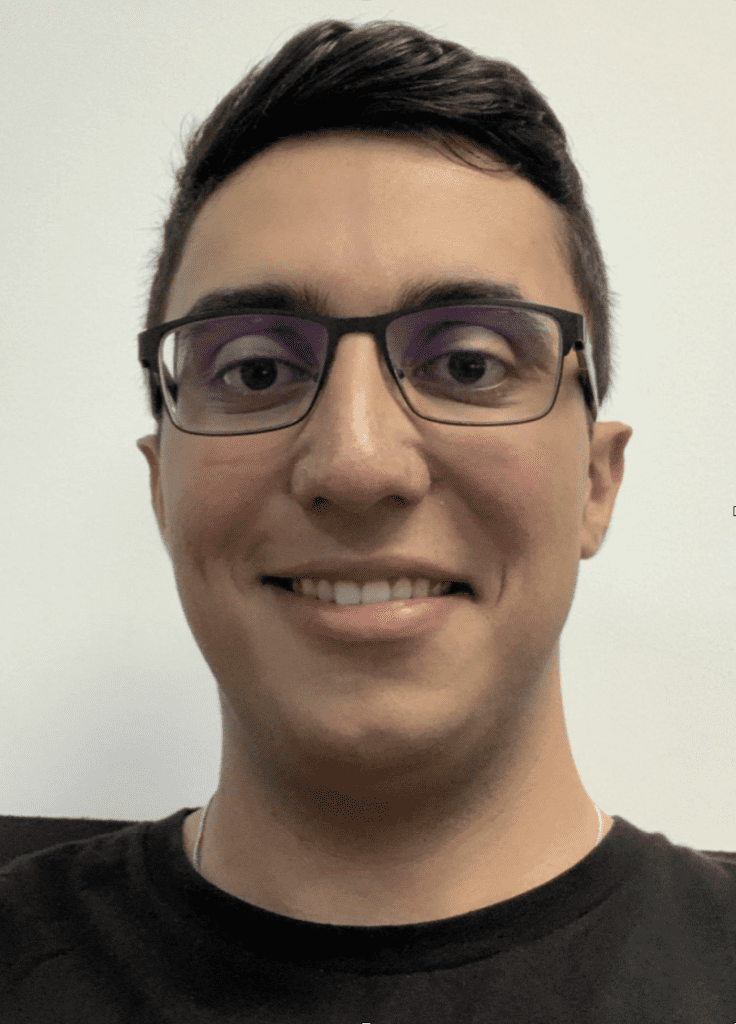
Felipe Kalluf Faria
Felipe started the Physics Ph.D. program at UCF in Fall 2023. He studies the phase of resonant photoionization transitions in molecules by simulating numerically their attosecond transient absorption spectra (ATAS) above the ionization threshold using the newly developed ASTRA molecular ionization program. While still an undergraduate, Felipe presented his work “Attosecond electronic excitations in molecules” at the 2023 NCUR conference at the University of Wisconsin, in Eau Claire (WS). In the future, Felipe will apply attosecond optical spectroscopies to study charge migration in polyatomic molecules. Prior to the Ph.D. program, Felipe developed a Python graphical user interface to Aleph, a LaTeX script developed in the group that generates multiple-choice questions with randomized parameters. Felipe’s work was used to prepare several mid-term and final exams for introductory physics courses at UCF. In his free time, Felipe likes to learn about music history.
High-School Students

Andrew Ni
Andrew is a junior at Seminole High School, he is preparing for the USA Physics Olympiad, and he is interested in physics research. He joined the Theoretical Attosecond Science Lab as a HS intern in Fall 2024. Andrew is using the close-coupling molecular ionization / photodetachment code ASTRA, developed in the group, to determine the properties of metastable states of uracil negative ion. These states, which have a lifetime of few femtoseconds, are precursors of genetic mutations. Andrew’s work will help us understand their decay mechanism, possibly using ultrafast spectroscopy to observe this process in real time.
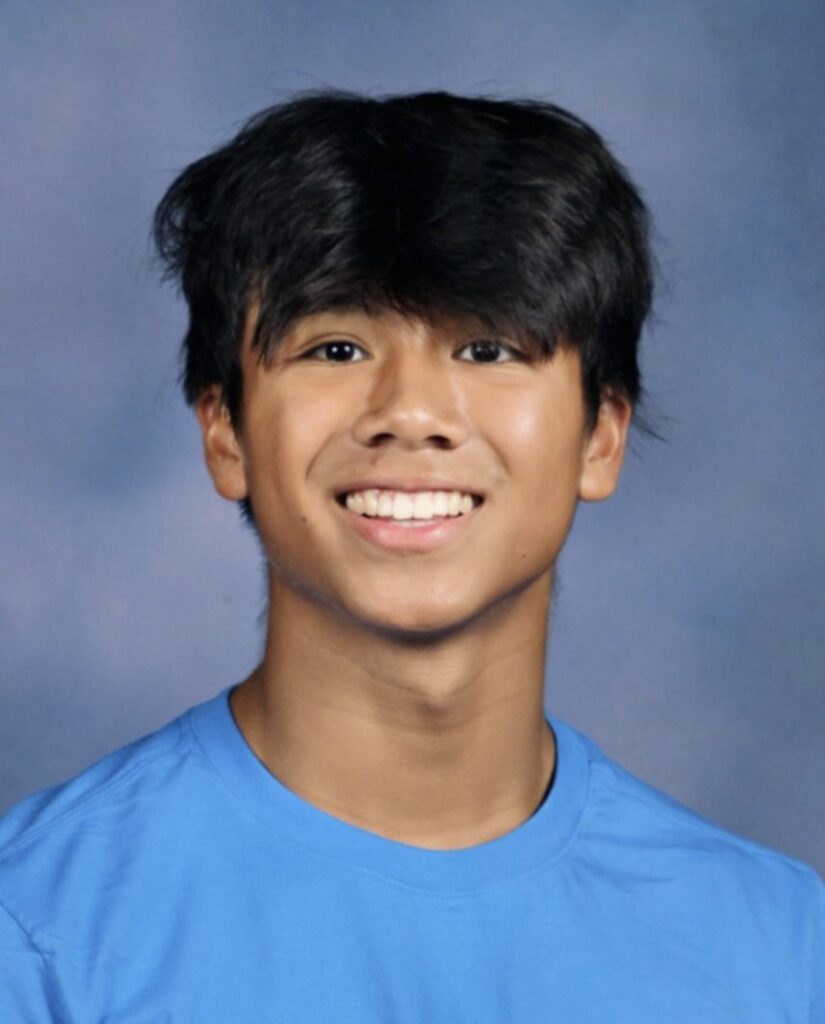
Jacob Melendez
Jacob is a junior at Timber Creek High School, and a dual enrollment student at UCF. He is preparing for the USA Physics and Chemistry Olympiads, and he is passionate about quantum mechanics. He joined the Theoretical Attosecond Science Lab as a HS intern in Fall 2024. Andrew is using the close-coupling molecular ionization code ASTRA, developed in the group, to compute the molecular-frame photoelectron angular distribution in the ionization of the furan molecule, a conjugated heterocyclic compound with aromatic character. Andrew’s work will lay the foundation for the study of ultrafast charge migration in this molecule, following the absorption of ionizing radiation.
Testimonial: Working with Dr. Luca Argenti, Dr. Carlos Marante, and Felipe Kalluf Faria at the Theoretical Attosecond Physics Lab has truly been an extraordinary experience. Coming from a high school with limited access to research resources, I was eager to learn but lacked direction until Dr. Argenti generously took me under his wing. He and Dr. Marante dedicated time to teaching me the fundamental theory I needed to bridge the gap between high school physics and advanced quantum mechanics. As I transitioned into the work, Felipe and Dr. Marante were incredible mentors, guiding me through the complexities of using the ASTRA code to simulate molecular ionization in furan. Their support empowered me to not only understand the science but also make tangible contributions to the group’s workflow and computational tools. Through this opportunity, I have gained essential research and collaborative skills, and learned that scientific progress often requires resilience in the face of challenges. I am deeply grateful for the trust they placed in me, which has sparked a relentless passion for discovery that will follow me wherever my path leads next.
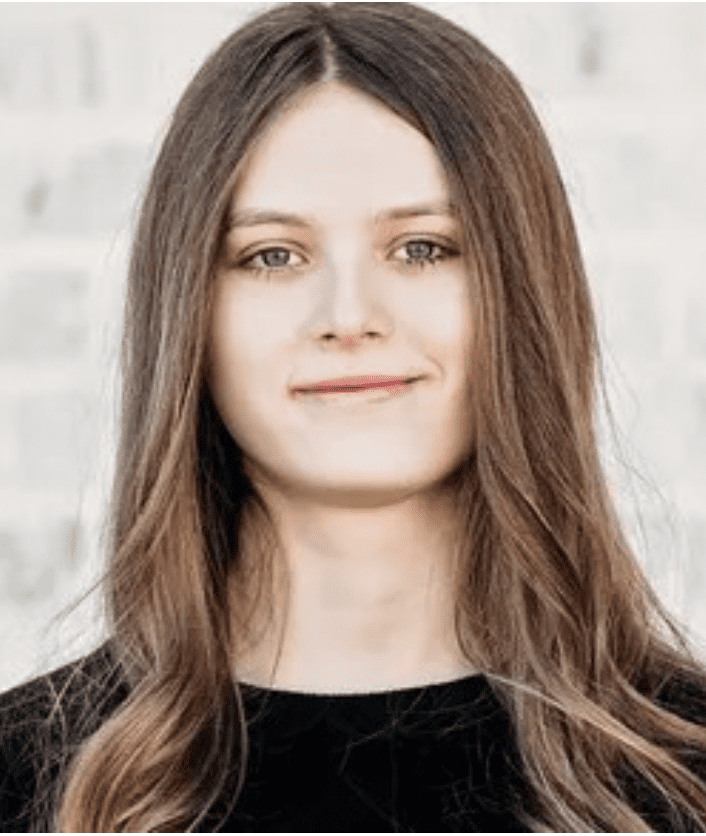
Madeleine Brignac
Madeleine is a junior at Seminole High School. She has discovered an extraordinary passion for physics when participating to the Science Olympiad, in seventh grade. Her goal is to qualify at the USAPhO, and pursue physics at the undergraduate and graduate level in college. Madeleine spent Summer 2024 at the University of Pennsylvania’s Experimental Physics Research Academy for an immersive physics program, where she worked on both theoretical and experimental projects ranging from electromagnetism to quantum mechanics. She joined the Theoretical Attosecond Science Lab as a HS intern in Fall 2024, where she is using advanced quantum mechanical scattering methods to study the fragmentation pattern of helium doubly-excited states. Her work is instrumental to understand how atoms and molecules break up after being excited by the collision with charged projectiles or energetic photons.
Testimonial: Working with Dr. Argenti and Nicholas Lewis has been incredibly rewarding. When I came to their lab, I had a passion for physics, but no significant research experience. Both Dr. Argenti and Nicholas combined their deep subject knowledge with patience and clarity, guiding me through complex concepts while encouraging independent thinking and growth. Dr. Argenti taught me the theoretical underpinnings of the project, and Nicholas guided me through the details, teaching me code and data analysis. Their support was invaluable, and I gained research skills and a curiosity that will stay with me beyond this project. This collaborative experience has changed the trajectory of my future plans, shifting my focus to pursuing physics research in college. It’s made me realize that I enjoy contemplating theory, asking tough questions, and having the patience and dedication to find answers.
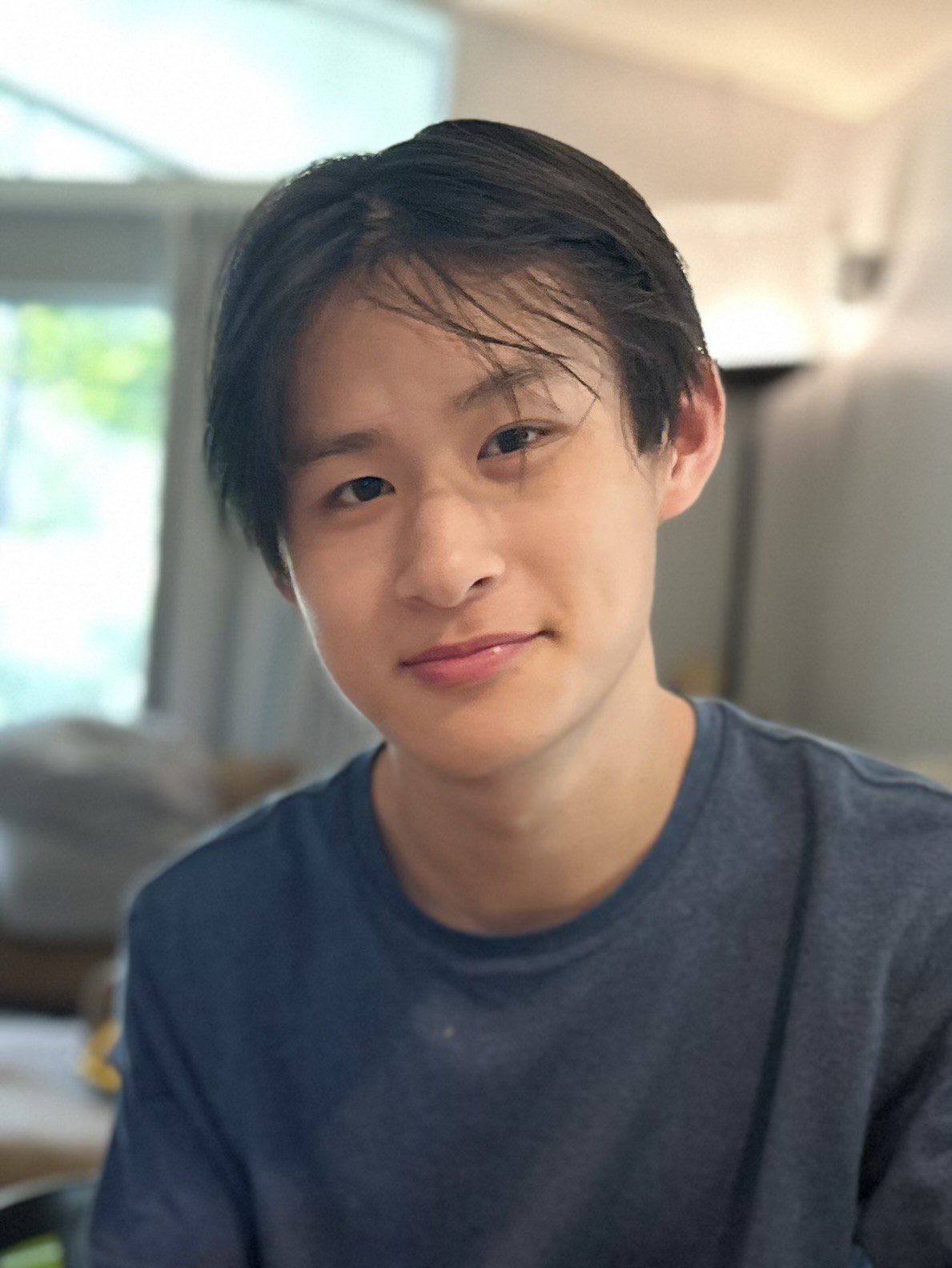
Nathan Kwok
Nathan is a junior at Timber Creek High School, a dual enrollment student at UCF, and a passion for physics and chemistry. He joined the Theoretical Attosecond Science Lab as a HS intern in Fall 2024. Andrew is using the ASTRA code developed in the group to study the electronic structure of the autoionizing states populated by the collision between one electron and the pyridine molecule, a substance closely related to the metabolism of amino acid tryptophan. Pyridine autoionizing negative ions eventually fall apart by emitting an electron. In his work, Nathan will study whether the electron escapes by quantum tunneling (shape mechanism) or by stealing energy from the other electrons in the molecule (Feshbach mechanism). This study will allow us to better understand the transfer of energy between electrons and molecules, which is essential to initiate and control chemical transformations.
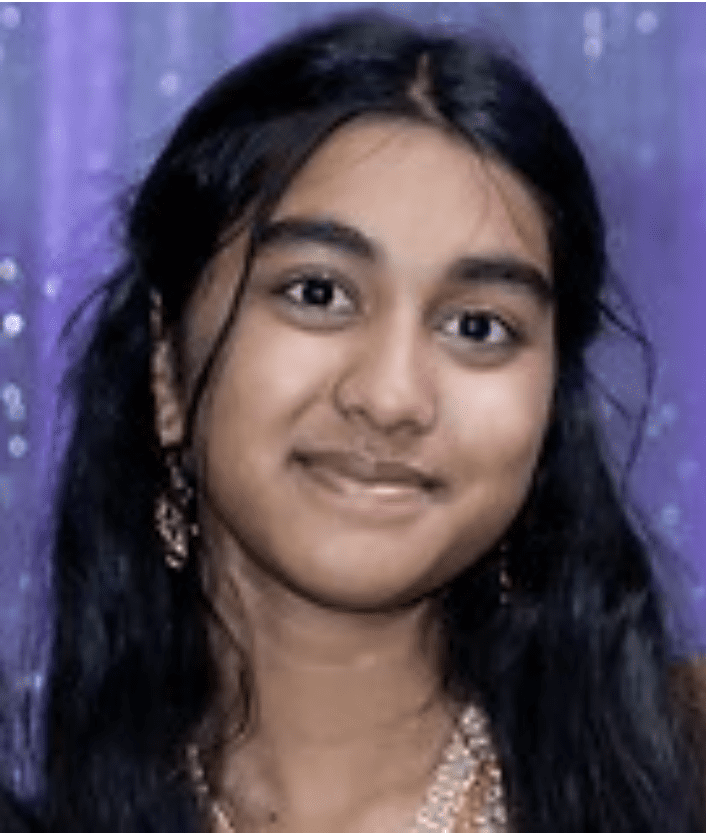
Suchita Vennam
Suchita, a senior at Lake Highland Preparatory School, joined the Theoretical Attosecond Science Lab in 2023 as a scientific mentee, within the ASPIRE program. Suchita has used the ASTRA molecular ionization code to study ultrafast charge migration in the ethylene molecule. To do so, she employed a short pulse of extreme ultraviolet radiation to ionize the electronically excited molecule, monitoring the direction along which electrons are emitted, as a function of time. In 2024, Suchita was invited to present her work at the 62nd National Junior Science and Humanity Symposium (JSHS), in Albuquerque (NM), fully supported by the Department of Defense. Suchita is currently working on a manuscript based on her research to be submitted at an international peer-reviewed journal.
Past group members
- Saad Mehmood, Ph.D. Now postdoctoral fellow at the University of Central Florida (FL)
- Coleman Cariker, Ph.D. Now postdoctoral fellow at Sandia National Lab (NM)
- Nicolas Douguet, Ph.D. Now Assistant Professor at the University of Central Florida (FL)
- Juan Martín Randazzo, Ph.D. Now Staff member at Instituto Balseiro, CONICET, Centro Atómico Bariloche (Argentina)
- Bejan Ghomashi, Now Ph.D. student at the University of Colorado at Boulder (CO)
- William Matthew Bowman, Now Ph.D. student in the Optics Graduate Program at the University of Central Florida (FL)
- Mateo Cuesta, Now in the private sector (laser industry)
- Jeremy Ponsot, Now in the private sector
- Zain Khan, Now in the private sector
- Ruben Fernandez Carbon, Now in the private sector
- Christopher Klatt
- Dylan Perkowski
- Franklin Romero Vega
- Harold Mathias, Now Ph.D. student in the Physics Graduate Program at the University of California Irvine (CA)
- Nolan Vild, Now Ph.D. student at the Department of Electrical Computer Engineering at the University of Boston (MS)
- Ryan Summers, MS in mathematics.
